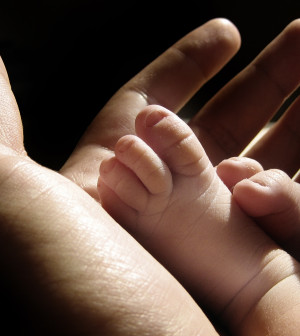- Could Your Grocery Store Meat Be Causing Recurring UTIs?
- Are You Making This Expensive Thermostat Error This Winter?
- Recognizing the Signs of Hypothyroidism
- 10 Strategies to Overcome Insomnia
- Could Artificial Sweeteners Be Aging the Brain Faster?
- Techniques for Soothing Your Nervous System
- Does the Water in Your House Smell Funny? Here’s Why
- Can a Daily Dose of Apple Cider Vinegar Actually Aid Weight Loss?
- 6 Health Beverages That Can Actually Spike Your Blood Sugar
- Treatment Options for Social Anxiety Disorder
Scientists Spot Clues to Why Males Have Tougher Time in the Womb


Why do male babies have a tougher time in the womb than their female counterparts?
A new study suggests that the placenta — the organ that connects the developing fetus to the mother and provides nourishment in the womb — plays a major role in creating differences that go beyond the obvious physical differences between the genders.
“Our research has found that there are undeniable genetic and physiological differences between boys and girls that extend beyond just the development of their sexual characteristics,” study co-author Claire Roberts, leader of the fetal growth research priority for the University of Adelaide’s Robinson Research Institute in Australia, said in an university news release.
“We’ve known for some time that girls are clearly winning in the battle for survival, with markedly better outcomes for female babies for preterm birth, stillbirth, neonatal death and other complications after birth, such as macrosomia [a baby that weighs more than 8 pounds 13 ounces at birth],” Roberts said. “Male babies generally grow faster and bigger than females. This occurs in both the animal and human worlds, but until now we haven’t really understood how or why.”
In the new study, researchers found that genes produced by the placenta are different in males and females.
“We found that with female babies, there is much higher expression of genes involved in placental development, the maintenance of pregnancy and maternal immune tolerance,” study co-author Sam Buckberry, a graduate student at Adelaide, said in the news release.
Roberts pointed out that “these findings may be important to help guide future sex-specific therapeutics [treatments] for pregnant women and for babies in the neonatal nursery.”
The study is published in the May 27 online issue of the journal Molecular Human Reproduction.
More information
For more about fetal development, try the U.S. National Library of Medicine.
Source: HealthDay
Copyright © 2026 HealthDay. All rights reserved.










